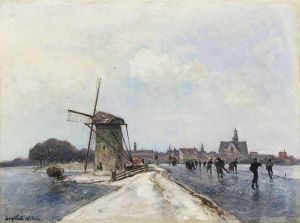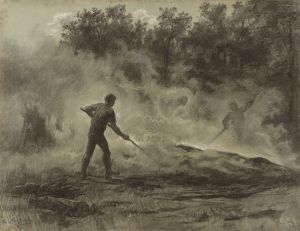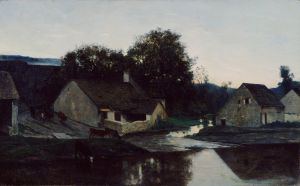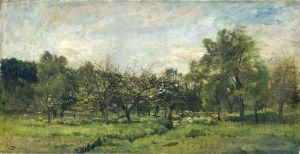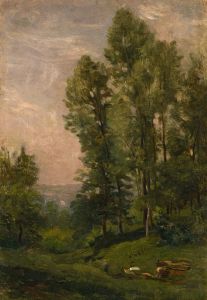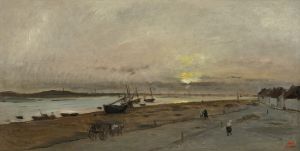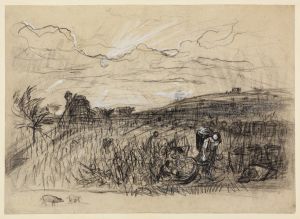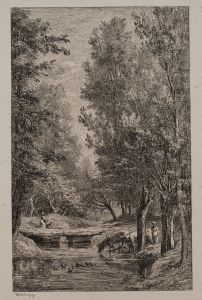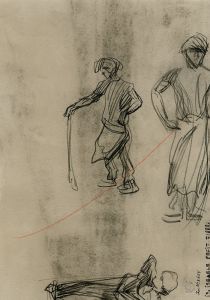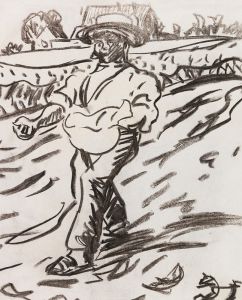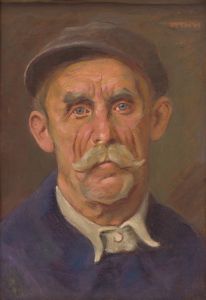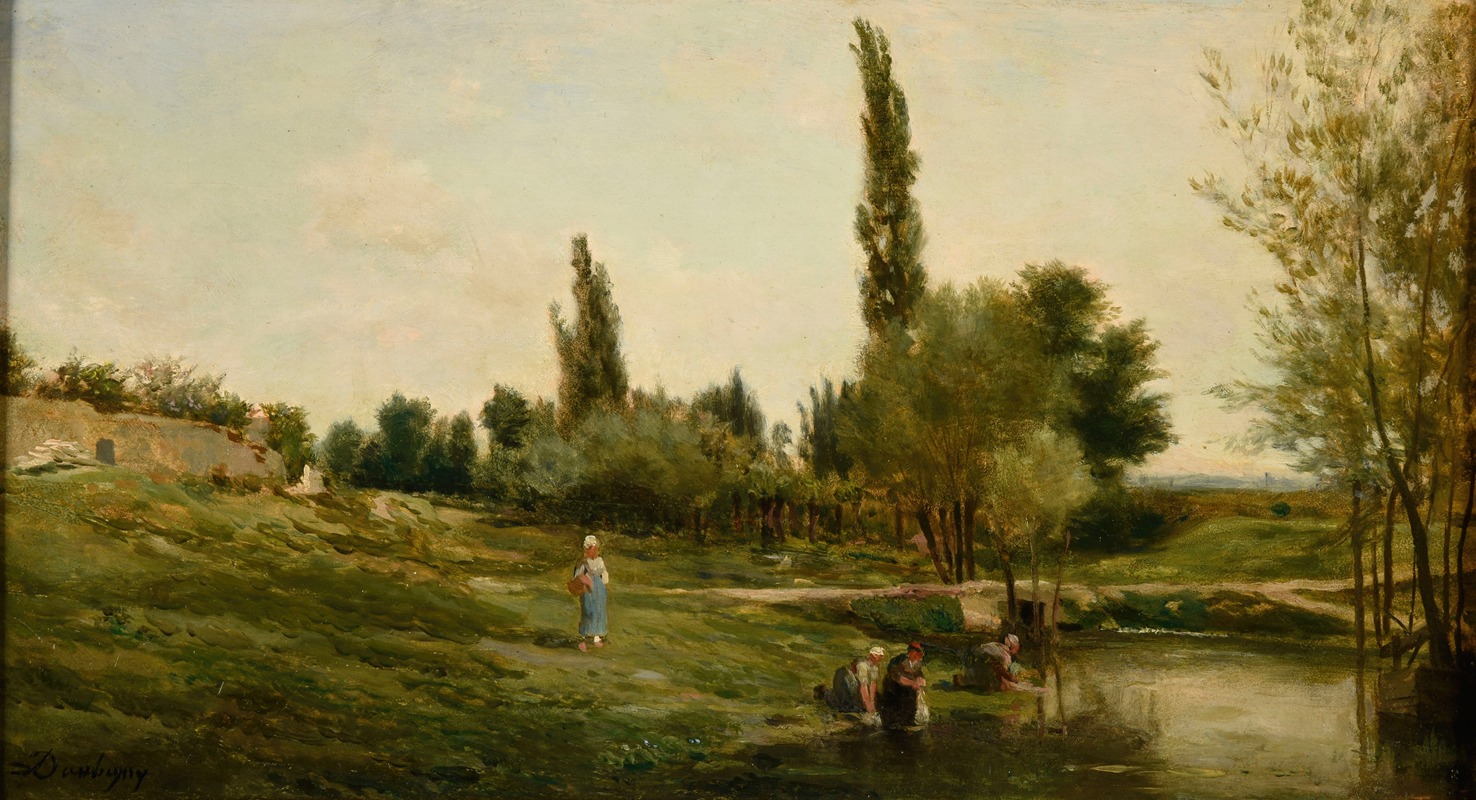
Paysage avec laveuses Peintre
A hand-painted replica of Charles François Daubigny’s masterpiece Paysage avec laveuses Peintre, meticulously crafted by professional artists to capture the true essence of the original. Each piece is created with museum-quality canvas and rare mineral pigments, carefully painted by experienced artists with delicate brushstrokes and rich, layered colors to perfectly recreate the texture of the original artwork. Unlike machine-printed reproductions, this hand-painted version brings the painting to life, infused with the artist’s emotions and skill in every stroke. Whether for personal collection or home decoration, it instantly elevates the artistic atmosphere of any space.
Charles-François Daubigny (1817–1878) was a prominent French landscape painter associated with the Barbizon School, a group of artists who worked primarily in the mid-19th century and emphasized naturalistic depictions of rural scenes. Daubigny is particularly known for his innovative approach to plein air painting, which involved working outdoors to capture the natural light and atmosphere of a scene. His work is often considered a precursor to Impressionism, influencing artists such as Claude Monet.
One of Daubigny's notable works is "Paysage avec laveuses" (translated as "Landscape with Washerwomen"). This painting exemplifies his focus on rural life and the natural environment, themes that were central to his artistic vision. The artwork depicts a tranquil riverside scene, where washerwomen are engaged in their daily labor. The composition highlights Daubigny's skill in capturing the interplay of light and shadow, as well as his ability to render the reflective qualities of water. The figures of the washerwomen are integrated harmoniously into the landscape, emphasizing the connection between human activity and nature.
Daubigny often painted scenes along the rivers Seine and Oise, and it is likely that this work was inspired by his observations of these regions. He frequently used a boat, which he converted into a floating studio, to access and paint these riverside landscapes. This innovative approach allowed him to explore new perspectives and capture the changing effects of light and weather on the water and surrounding countryside.
"Paysage avec laveuses" reflects Daubigny's broader artistic philosophy, which sought to depict the beauty of ordinary, everyday life in rural France. His work marked a departure from the more formal and idealized landscapes of earlier periods, favoring instead a more direct and intimate engagement with nature. This approach resonated with the growing interest in realism during the 19th century and helped to pave the way for later developments in modern art.
The painting is held in a private collection or museum, but specific details about its current location and provenance are not widely documented. As with many of Daubigny's works, "Paysage avec laveuses" continues to be appreciated for its technical mastery and its role in the evolution of landscape painting in France.





